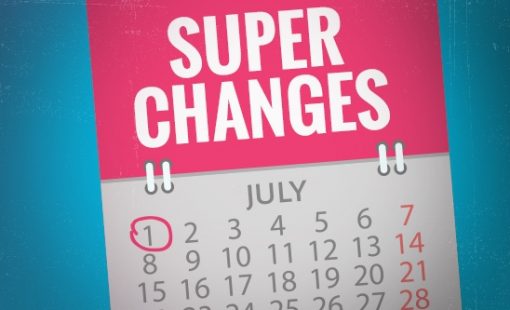Hardly a week goes by without the mainstream media mentioning superannuation. It certainly remains at the forefront of many conversations around the country at the moment! Here is a quick summary of the major changes you need to remember…

The changes to superannuation that were announced in the 2016 Budget have now (mostly) made their way into legislation. While a lot of attention has been given to the steps that need to be taken by 30 June 2017, now is an opportune time to look at some of the measures that come into effect on 1 July 2017.
Non-concessional contributions
These are contributions made to superannuation, generally from after-tax income, by individuals for their own benefit (or for their spouse). From 1 July 2017, only people with less than $1.6m will be able to make a non-concessional contribution. The maximum that may be contributed as a non concessional contribution will reduce to $100,000 per annum.
Individuals under the age of 65 may be able to bring forward up to three years’ contributions, with some limitations for those having between $1.4m and $1.6m in
super.
Concessional contributions
Concessional contributions are typically those made under the superannuation guarantee system and other employer arrangements, and contributions made by
individuals who are able to claim a tax deduction for their contributions.
From 1 July 2017, these contributions will be limited to a maximum of $25,000 per annum. Individuals who are currently sacrificing part of their salary to superannuation, in addition to receiving superannuation guarantee contributions, should review their arrangement ensuring they don’t exceed their $25,000 cap.
Tax deductible contributions
Income tax law currently allows people who derive less than 10% of their income from employment activities to claim a tax deduction for their personal contributions.
However, the maximum 10% is to be removed from 1 July 2017. This means that most people will be able to claim a tax deduction for the personal contributions they make to super irrespective of the level of income they receive from employment.
The maximum concessional contribution cap of $25,000, which includes superannuation guarantee contributions, will still apply.
Spouse contributions
An individual who makes non-concessional contributions for their low income earning spouse (under 65) may claim a tax offset of up to $540 for the contributions
they make. Currently – the maximum income the spouse, for whom the contributions are made, may receive is $13,800 per annum, for an offset to be available.
This income limit is to increase to $40,000, making the spouse offset available to many more who wish to make super contributions on behalf of their spouse.
Low income tax offset
Concessional contributions are taxed at a rate of 15%. As a result, low income earners may have their superannuation contributions taxed at a higher rate than
their personal tax rate. The low income tax offset, which replaces a previous arrangement that expires on 30 June 2017, will ensure that superannuation contributions of low income earners is not taxed at a higher rate than they pay personally.
As always, if you are looking to take advantage of the opportunities that exist, always consider seeking appropriate advice before you act.


